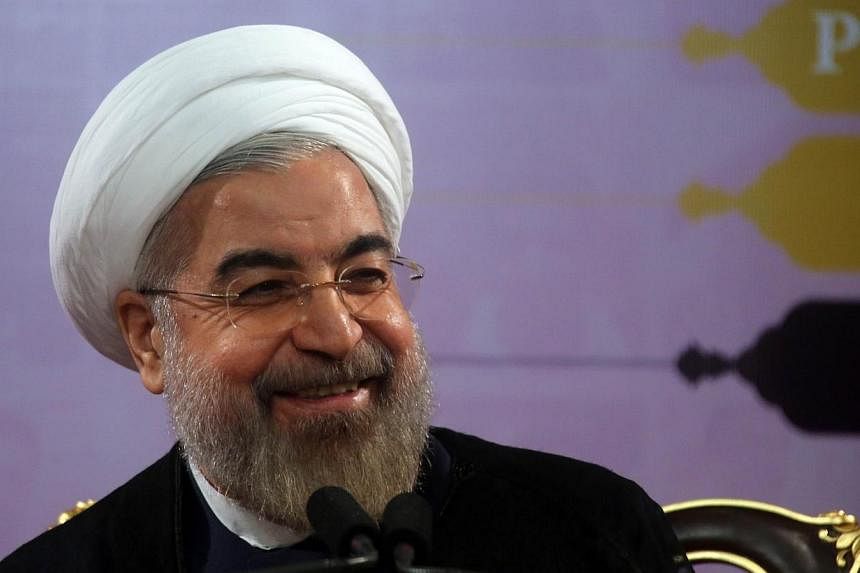LONDON (AFP) - Iran's President Hassan Rouhani should be trusted over Teheran's nuclear programme, but he must be judged on his actions not words, British lawmakers said in a report on Monday.
The report by the influential Foreign Affairs Committee of the House of Commons came as world powers including Britain held talks with Iran in Vienna on the issue.
Ties between Britain and Iran have thawed in recent months and Britain reopened its embassy in Teheran three years after it was stormed by a mob angered by the sanctions imposed over the nuclear row.
The British committee warned that Mr Rouhani, a self-declared moderate who took office in August last year, was "not necessarily a reformist at heart".
But it added that the world powers involved in the talks "can have confidence that he is an authoritative representative of Iran, and we believe that he is genuinely committed to a sustainable deal.
"For now at least, he should be trusted, but he should be judged by his actions, not by his words."
The Vienna talks between Iran and the five permanent United Nations Security Council members - the United States, Britain, France, Russia and China - plus Germany are seeking a historic deal by July 20, when a six-month interim accord runs out.
The British committee said there was "probably no prospect of a lasting deal which does not allow Iran to enrich uranium".
But it added that enrichment capacity should be limited so that any attempt to achieve "breakout" of nuclear warhead production could be detected, and suggested that a six-month window for such detection was appropriate.
Any deal should also include the right of the International Atomic Energy Agency to make "unannounced and intrusive inspections," it said.
Despite Iranian insistence that the enrichment was exclusively for energy production and medical purposes, world powers fear Teheran's programme was aimed at attaining nuclear weapon capability.
The committee, meanwhile, welcomed the reopening of the British embassy, saying that the closure had "resulted in the UK being less visible in the country".

